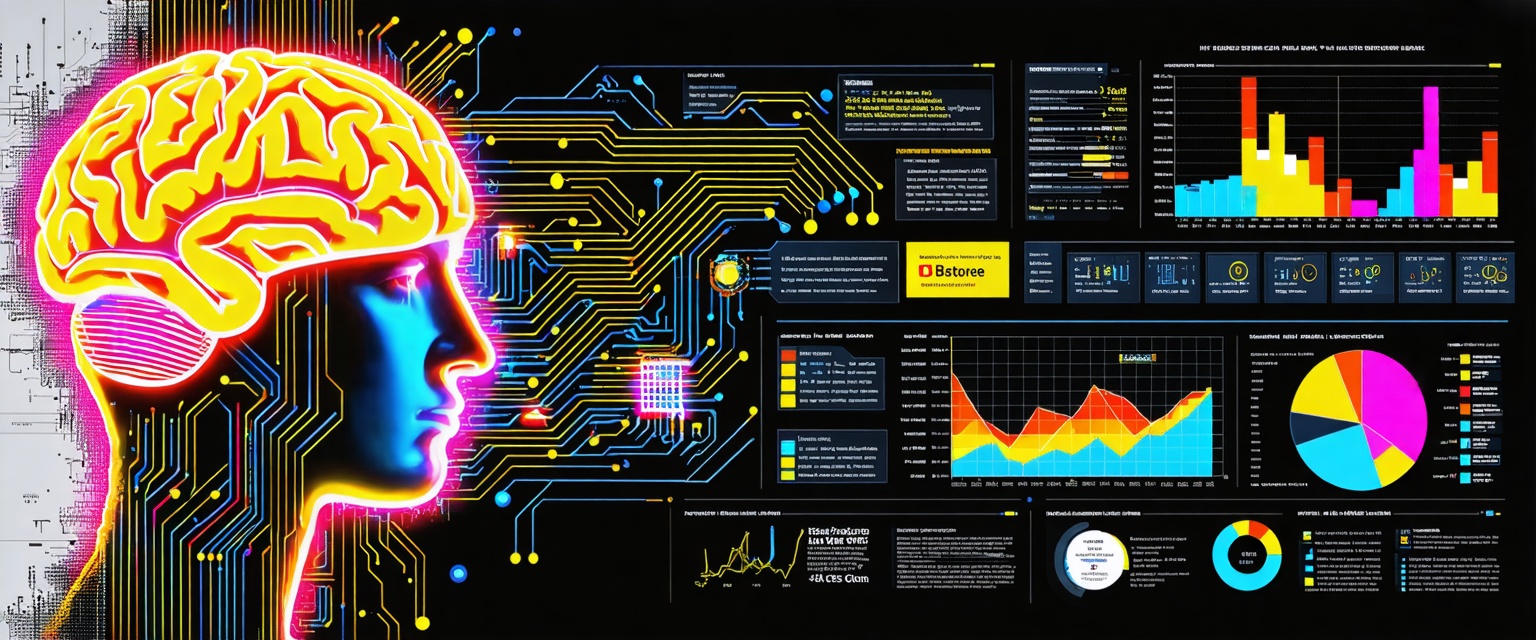Discover how AI agents revolutionize incident report analysis, boost clinical operations efficiency, and enhance patient safety for healthcare leaders.
A lot of hospital errors go unreported, while clinical managers drown in paperwork from incident reports. Manual processing wastes time, impedes learning from mistakes, and endangers patient safety.
AI agents offer a solution by using natural language processing to analyze unstructured data quickly, finding patterns humans might miss, leading to enhanced efficiency with AI. Datagrid's data connectors process thousands of documents simultaneously, pulling critical information from existing systems to free clinical managers from paperwork.
Understanding Incident Report Analysis
Incident report analysis serves as a cornerstone for improving patient safety, quality of care, and operational efficiency in healthcare settings. It involves the systematic review and evaluation of reported incidents, near-misses, and adverse events.
At its core, incident report analysis encompasses:
- Collection of detailed incident data
- Classification and categorization of incidents
- Investigation of root causes and contributing factors
- Identification of trends and patterns
- Development and implementation of corrective actions
- Monitoring the effectiveness of interventions
The importance of this process cannot be overstated. Effective incident analysis helps healthcare organizations identify systemic issues before they result in serious patient harm.
Effective incident report analysis requires a combination of clinical expertise, analytical skills, and a deep understanding of healthcare processes. With advanced technologies like artificial intelligence, the potential for more comprehensive and efficient analysis is rapidly expanding.
Why Clinical Managers Analyze Incident Reports
Analyzing incident reports is a critical responsibility that directly impacts patient safety, quality of care, and overall organizational performance.
Ensuring Patient Safety
The primary goal in analyzing incident reports is to identify potential risks and prevent future harm to patients. By reviewing each report, patterns that indicate systemic problems in care delivery become visible.
This proactive approach allows for the implementation of corrective measures before a minor incident escalates into a serious adverse event.
Improving Quality of Care
Incident reports serve as valuable feedback mechanisms for enhancing care quality. Through analysis, areas where clinical processes or staff training may be lacking can be identified.
This insight enables the development of targeted improvement initiatives, refinement of protocols, and ultimately better outcomes for patients.
Risk Management and Mitigation
Effective incident report analysis is a cornerstone of risk management strategy. By understanding the root causes of incidents, measures can be implemented to mitigate future risks.
This not only protects patients but also safeguards organizations from potential legal and financial consequences associated with preventable adverse events.
Regulatory Compliance and Accreditation
Analyzing and acting upon incident reports is crucial for maintaining compliance with regulatory standards and achieving accreditation. Organizations like the Joint Commission require formal incident reporting and risk management systems.
By demonstrating commitment to thorough incident analysis, continuous improvement, and utilizing AI in compliance monitoring, healthcare organizations can meet these regulatory requirements and maintain accreditation status.
Resource Allocation and Staff Training
Incident report analysis provides valuable insights into where resources and training efforts should be focused. By identifying recurring issues or knowledge gaps, budgets can be allocated more effectively towards addressing these areas.
This might involve purchasing new equipment, implementing additional safety measures, or developing targeted training programs to enhance staff competencies.
How AI Agents Automate Incident Report Analysis for Clinical Managers
AI agents are revolutionizing the way clinical managers handle incident report analysis. Through AI agents for process automation, these intelligent systems streamline processes, reduce administrative burdens, and enhance patient safety outcomes.
Understanding AI Agents in Clinical Management
AI agents function as autonomous digital assistants that interpret, analyze, and act on massive amounts of clinical data, serving as AI agents for information gathering. For clinical managers, these AI tools transform overwhelming report volumes into actionable insights.
They learn continuously from new data, becoming more accurate over time, and assist in tasks such as medical records validation.
Natural Language Processing (NLP)
NLP allows AI agents to comprehend human language, making it ideal for handling clinical notes, patient feedback, and incident reports. When analyzing incidents, NLP helps AI:
- Extract key details from lengthy clinical reports
- Spot potential adverse events that humans might miss
- Sort incidents by severity and urgency
- Identify common terminology and themes across reports
An AI with NLP capabilities can read through clinician notes and flag safety concerns or adverse events, even when they're buried in routine documentation.
Machine Learning (ML)
ML enables AI agents to learn from past data and improve over time. For incident analysis, ML assists by:
- Identifying complex patterns across multiple reports
- Assessing risk levels to prioritize incidents needing immediate attention
- Enhancing detection and analysis as more data is processed
- Predicting potential future incidents based on historical patterns
These capabilities allow clinical managers to shift from reactive to proactive safety management, addressing potential issues before they occur.
Integration and Workflow Enhancement
AI agents integrate seamlessly into existing clinical systems, enhancing workflows rather than complicating them. They can:
- Handle the initial screening and sorting of incident reports
- Alert staff immediately when high-risk situations arise
- Generate detailed analytics to support better decision-making
- Automate follow-up tracking for implemented solutions
AI agents can automatically detect and flag potential adverse events by continuously monitoring patient data, lab results, and unstructured data from clinician notes. This capability drastically reduces manual work while making incident detection faster and more accurate.
Common Time Sinks in Manual Incident Report Analysis
Clinical managers often face significant time drains when analyzing incident reports manually. These time sinks impact both efficiency and the quality of insights:
Data Collection and Consolidation
Gathering reports from various sources like paper forms, emails, electronic systems, and verbal accounts is labor-intensive and error-prone. A single incident might be documented in multiple places with varying details.
Standardizing this information requires significant effort. Clinical managers often spend hours just organizing data before analysis can even begin. Solutions that automate claims forms analysis could alleviate this burden.
Report Classification and Prioritization
Manually sorting through each report to determine its severity and category can be subjective and time-consuming. Inconsistent classification makes trend analysis difficult.
Without automated tools, high-priority incidents might not receive timely attention while clinical managers wade through less critical reports.
Identifying Patterns and Trends
Spotting trends across hundreds of reports is challenging without automated tools, leading to missed insights. Human analysts are limited in how much information they can process simultaneously.
Subtle correlations between different types of incidents often go unnoticed when reviews are conducted manually and in isolation.
Root Cause Analysis
Investigating the underlying causes of incidents requires extensive analysis that can be expedited with AI assistance. Manual analysis often misses subtle connections between seemingly unrelated events.
Clinical managers must invest significant time interviewing staff, reviewing documentation, and investigating circumstances—time that could be better spent implementing solutions.
Report Generation and Documentation
Creating comprehensive reports that meet regulatory standards consumes valuable time that could be directed toward addressing actual issues.
Clinical managers often spend hours compiling findings, formatting reports, and ensuring all documentation meets compliance requirements.
Follow-up and Action Tracking
Monitoring the implementation and effectiveness of corrective actions adds to the administrative burden. Without automated tracking, follow-ups often fall through the cracks.
Clinical managers must manually check on the status of each intervention, taking time away from other critical responsibilities.
Datagrid for Healthcare Professionals
Datagrid's AI-powered platform transforms healthcare challenges into opportunities for better patient care and streamlined operations.
Streamlined Medical Documentation
Datagrid processes thousands of patient records simultaneously, automating medical records verification, automating scanned documents parsing, extracting vital information, spotting patterns, and organizing data for quick access.
This allows clinical staff to spend less time on paperwork and more time with patients, while still maintaining comprehensive documentation for safety and compliance purposes.
Efficient Incident Report Processing
AI agents handle incident reports by automatically categorizing, prioritizing, and connecting related events. They automate medical records review, identify potential root causes, and suggest effective interventions based on historical data.
Your clinical managers can focus on implementing solutions rather than drowning in administrative tasks, leading to faster resolution of safety issues.
Enhanced Treatment Protocol Analysis
Datagrid's AI compares patient cases against evidence-based guidelines to support clinical decisions and discover optimal care approaches.
This capability helps identify when incidents may be related to protocol deviations, allowing for targeted improvements in clinical practice.
Comprehensive Medication Management
Monitor prescription patterns, potential drug interactions, and adherence trends across your patient population with Datagrid's advanced analytics.
The system flags medication-related incidents and identifies systemic issues that may contribute to adverse drug events before they become widespread problems.
Robust Regulatory Compliance Support
Stay ahead of HIPAA, GDPR, and other healthcare regulations with AI that continuously audits documentation practices, helps streamline policy document processing, and identifies compliance risks early.
Datagrid ensures your incident reporting meets all regulatory requirements, saving time on compliance tasks while reducing organizational risk.
Insightful Population Health Analytics
Automate medical records digitization to analyze demographic data, health outcomes, and social factors across your patient community to identify potential safety concerns affecting specific populations.
These insights help develop targeted safety initiatives based on real data, ensuring resources are allocated to areas of greatest need.
Simplify Healthcare Tasks with Datagrid's Agentic AI
Don't let data overload hinder your operations. Datagrid's AI platform is designed for healthcare teams seeking to cut through complexity and prioritize patient care. With our technology, you can:
- Automate tedious data tasks: Spend more time on patient care
- Reduce processing time: Make faster, informed decisions
- Gain immediate insights: Harness the power of your clinical data
- Focus on patient outcomes: Let AI handle the data-heavy tasks
Datagrid transforms how clinical managers handle incident reports, documentation, and compliance requirements. Our AI agents work tirelessly to process information, uncover patterns, and deliver analytics that support better patient outcomes.
See how Datagrid can boost your efficiency and improve care quality. Take the first step toward smarter, data-driven healthcare.
Create your free Datagrid account today and put AI to work for your practice.













